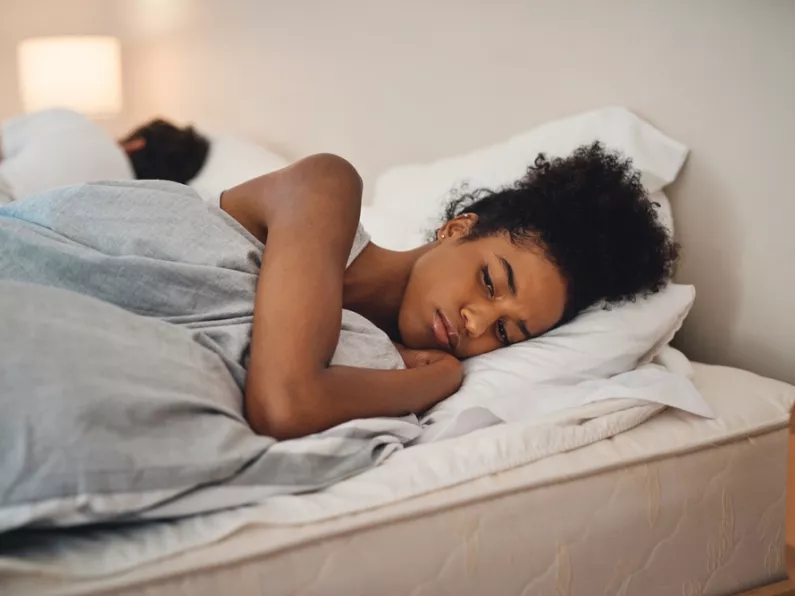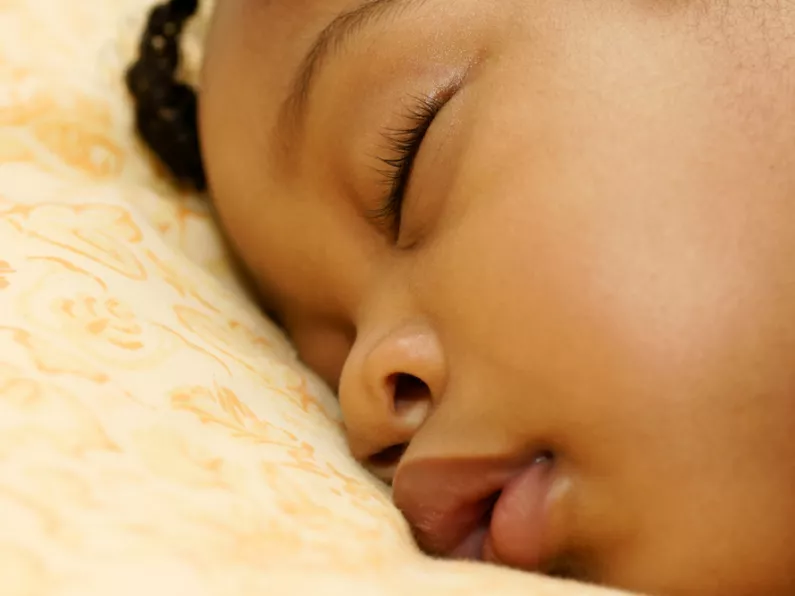Lack of sleep after having a baby can lead to postpartum depression in new moms.
Unfortunately, sleep deprivation is an unavoidable part of being a new mom.
You're already exhausted from pregnancy, then comes birth recovery, shifting hormone levels, and the round-the-clock demands of caring for a newborn.
Lack of sleep and postpartum depression
This often leads to moms experiencing the baby blues, and for some, postpartum depression.
The baby blues are less severe than postpartum depression and often resolve within a few days.
But 1 in 8 new moms experience symptoms of postpartum depression, according to the Centres for Disease Control.
Knowing how to identify postpartum depression is important, as it’s a serious condition that may not go away on its own without proper treatment.
Of course being tired is a normal part of having a new baby. But you should still tell your doctor how you are feeling and they can ask you some questions to rule out postpartum depression.
What is postpartum depression?
A better understanding of the relationship between sleep deprivation and postpartum depression can help you recognize when to seek help from a doctor.
Women with postpartum depression may feel overwhelmingly anxious, hopeless, and unable to get out of bed.
These feelings last for longer than two weeks and are more severe than just the baby blues.
They can also interfere with the ability to carry out day-to-day life.
Mothers with postpartum depression often have trouble bonding with their babies. As a consequence, postpartum depression can also have significant effects on the child’s development, causing problems with mood, low self-esteem, and difficulty relating to peers.
Postpartum depression is also more common in certain groups, such as first-time mothers, mothers of preterm babies, women with a prior history of depression, and those who lack a strong support network.
Sleep deprivation
Sleep deprivation can exacerbate symptoms of postpartum depression. And that doesn't necessarily mean no sleep at all, but also broken or restless sleep and poor quality sleep.
And it can be a vicious circle as depression often causes sleep problems as well.
After pregnancy, women experience a sudden drop in levels of estrogen, progesterone, and thyroid hormones.
This change affects the sleep cycle and that can lead to postpartum depression.
The symptoms
Postpartum depression can begin right after the baby is born, but it often develops more slowly over the following months.
Sleep deprivation and postpartum depression are both characterized by irritability, feeling overwhelmed, difficulty concentrating, feeling low, feeling tired, and trouble sleeping at night.
But if you are experiencing any of these more serious symptoms, you may be suffering from postpartum depression and you need to see your doctor immediately.
- Crying more often than usual
- Feelings of anger
- Withdrawing from loved ones
- Feeling numb or disconnected from your baby
- Worrying that you will hurt the baby
- Feeling guilty about not being a good mom or doubting your ability to care for the baby.
If your mood doesn’t improve after a good night of sleep, or if it gradually worsens even as your baby starts sleeping better, you may have postpartum depression.
The American College of Obstetricians and Gynecologists asks doctors to implement regular screening for postpartum depression in all women after giving birth.
The solutions
You will know as a new mom that you need quality sleep to function properly.
But that's easier said than done with a baby who doesn't know the difference between night and day and who may wake multiple times throughout the night to be fed.
Unsurprisingly, moms of babies who are difficult to soothe and who wake frequently during the night appear to suffer more symptoms of depression, anxiety, and fatigue.
Sleep problems for mothers begin as early as pregnancy, with many women never returning 12 to the blissful sleep they experienced before. Mothers who report very poor or drastically decreasing sleep quality during pregnancy 13are more likely to develop postpartum depression. Prioritizing better sleep during pregnancy may therefore be especially important for women who already have another risk factor for postpartum depression.
Getting quality sleep
Although there's no magic solution to help you sleep better, you can practice healthy sleep hygiene wherever possible.
Here are some top tips:
- get sunlight early in the day
- eat well and cut down on caffeine
- exercise regularly
- sleep when the baby sleeps
- ask for help so that you can nap
- avoid your phone late at night.
Treatment
Postpartum depression is treatable, and most people get better with treatment.
If you think you may be depressed, the first step to seeking treatment is to talk to your doctor.







